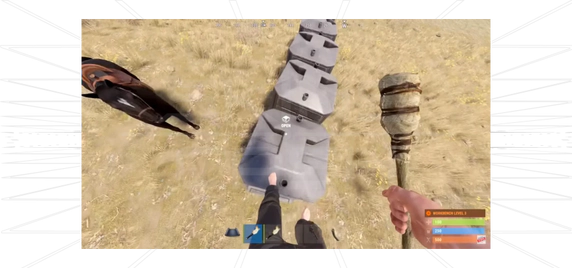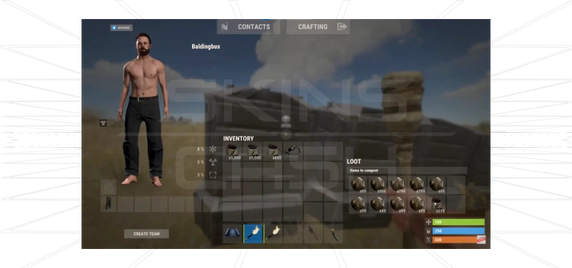Rust Composter Guide - How to Craft and Use It Effectively
Table of Contents
In Rust, mastering the rust composter is crucial for resource optimization. This essential structure enables players to convert organic materials into valuable fertilizer, boosting their farming capabilities and resource management.
For both solo survivors and clan members, learning how to use the composter properly can dramatically enhance your food production and long-term sustainability.
What is the Composter?

The rust composter is a crucial deployable structure in Rust that transforms organic waste and plant materials into potent fertilizer.
This valuable output is essential for crop cultivation, increasing harvest quantities, and accelerating plant development—making it a must-have tool for any serious farming operation.
How to Craft a Composter

To build a composter in Rust, gather these materials:
- 200 Wood
- 5 High-Quality Metal
After crafting, deploy the composter anywhere within your compound. Positioning it near planters is recommended for convenient fertilizer access.
How to Use the Composter
Here’s a step-by-step guide on how to use the Rust composter:
1. Place Organic Materials
Access the composter’s storage and deposit organic materials. Optimal items include:
- Raw meat (fresh or spoiled)
- Corn
- Pumpkins
- Hemp fibers
- Seeds
- Mushrooms
2. Processing Time
The composter requires several minutes to convert materials into fertilizer. Larger input quantities yield greater fertilizer output.
3. Collect the Fertilizer
After processing completes, retrieve the fertilizer from the composter’s inventory for immediate crop application.
Best Uses for the Composter
The Rust composter excels at:
- Sustainable Farming – Maintaining consistent fertilizer production for faster, healthier crop growth.
- Efficient Waste Management – Converting unused organic materials into valuable farming resources.
- Trading & Bartering – Exchange fertilizer with other players, especially those managing large farms.
Tips for Maximizing Efficiency
Follow these strategies for optimal results:
- Use a Dedicated Farming Base – For serious agriculture, establish a specialized farm featuring multiple composters.
- Grow High-Yield Crops – Focus on corn and pumpkins, which generate abundant organic material for composting.
- Secure Your Composter – When placed outdoors, protect your composter from raiders targeting your fertilizer.
Summary
The Rust composter transforms waste into essential farming resources in Rust. Proper utilization ensures consistent food production, sustainable farming operations, and even trading opportunities.

